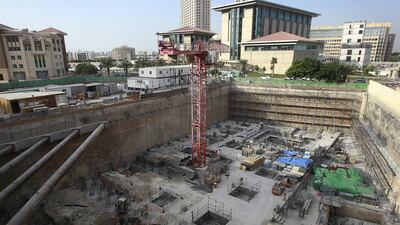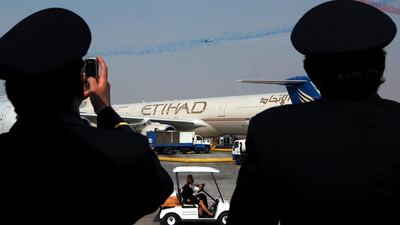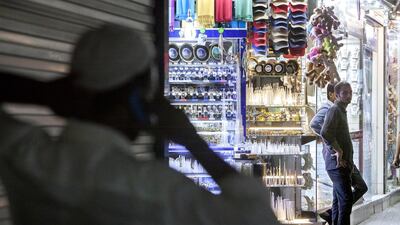We take a look at the IMF’s word of caution on Dubai’s major infrastructure projects, Etihad hiring more pilots, the ‘soft landing’ for the UAE economy, grace period in the introduction of value added tax and the opening of official Apple stores in the UAE.
Is bigger always better?
The IMF said Dubai's megaprojects were likely to be a major contributor to the UAE's economic growth in the run-up to 2020, but urged caution over their timing. It said the combined debt of Dubai's government and that of government-related entities (GREs) like Nakheel and Dubai Holding is still fairly substantial at $143bn, and that half of this fall due for repayment over the next five years. It said government should continue to support infrastructure projects, but said spending by both it and GRE counterparts like Dubai Holding and Meydan should be "gradual, in line with expected demand. William Harris, an emerging markets specialist at analyst Capital Economics, said that GREs borrowing money for projects needed to be sure they could still pay their way if there is a post-Expo lull in tourism numbers. Michael Fahy
From Abu Dhabi to the world
One of our most popular online stories this week dealt with Etihad hiring more pilots. As the Abu Dhabi-based airline expands to ever more destinations – some five dozen or so at last count – it needs more people in the cockpit to get its planes to those destinations. So the airline has decided that 200 pilots who were on secondment to Etihad from its partner alliances – such as airberlin, Alitalia and Air Seychelles – will be making their move to the UAE permanent. The newcomers will get five to seven months of training and then undergo a licensing test by the UAE's General Civil Aviation Authority. The move could also ease staffing pressures at the partner airlines. Rob McKenzie
‘Soft landing’ for UAE economy
The oil price rout has been a recurring theme globally – particularly in the Gulf countries, where there is a heavily reliance on crude export earnings to power their economies. The weak energy prices, according to analysts from Bank of America Merrill Lynch, would set the UAE economy for a "soft landing" this year, as growth slows to its lowest rate in six years. "Economic activity [in the UAE] has started to show signs of weakness," wrote Jean-Michel Saliba, an economist at the bank, in a research note. "Soft landing" is an industry term for a slowdown in economic growth that does not worsen inflation and unemployment. The IMF forecasts a slower 3 per cent GDP growth for 2015 compared 4.6 per cent last year, as the oil slump dampens real estate and corporate activity. The National staff
Not just yet
In parts of the world, pictures of kittens and lists of awesomest things ever are the stuff of clickbait. In the UAE, it's stories on the possible arrival of income taxes. Easily our leading story of the week – over 40,000 hits and counting – was our report that the UAE's finance ministry said there will be an 18-month grace period when (and if) a value added tax is introduced. The move comes as the government starts feeling the pinch from the decreasing price of oil. The VAT, which would make goods and services more expensive, would be done in the framework of the GCC customs union, Younis Haji Al Khouri, the finance ministry undersecretary, told The National last month. The UAE government however will likely implement new tax regimes very gradually to avoid making the UAE a less competitive place for people to set up businesses and work in. The country's tax-free status has attracted millions of expats over the years. Mahmoud Kassem
Apple stores in the UAE
If there is one news that generated excitement among the country's Apple fans, it was areport this week that the technology giant has secured an exemption from foreign ownership laws to set up shop in the UAE. Apple resellers are also looking forward to the arrival of the world's largest listed company on these shores as such an event could play into their hands. "An Apple store opening creates excitement, entertainment and brilliant PR for all Apple products," said Sean Connor, the general manager of Plug-Ins. Long-term effects on resellers, in terms of sales or changes to their current prices of Apple devices – which are set by the manufacturer – would be highly unlikely as competition with other brands including Samsung will remain fierce. The National staff
business@thenational.ae
Follow The National's Business section on Twitter





